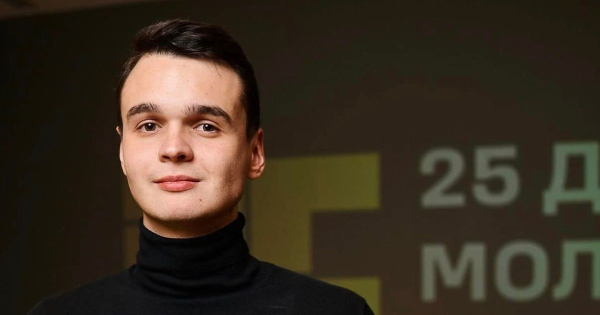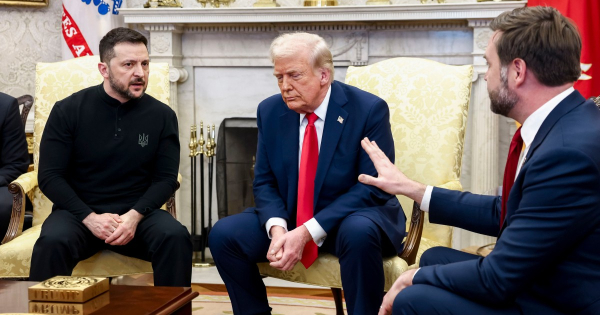
The European Parliament has issued a stark warning to the EU’s border agency Frontex this week over its “misconduct” related to handling migrants at EU borders, in a move considered by many as a victory for human rights.
But the question remains if and how Frontex could fulfil its important role in a dignified manner moving forward as the environment becomes increasingly complex.
Lawmakers in Parliament refused to validate Frontex’s 2020 accounts on Tuesday in criticism of its failure to protect the fundamental rights of migrants and asylum seekers.
The protest was mainly due to Frontex’s prior management under Fabrice Leggeri, who stepped down in April following an investigation by the EU’s anti-fraud office OLAF.
OLAF reportedly found that Frontex was complicit in illegal “pushbacks” of migrants by the Greek coast guard in 2020. It also documented incidents in other countries, including Malta, where 12 migrants died and the incident was covered up.
MEPs also demanded that Frontex’s support for return-related activities in Hungary be immediately suspended, given the bleak rule of law situation in the country.
Regarding Greece, they voiced concern about recent revelations that the former Frontex leadership was aware of people being illegally pushed back and even supported this and participated in its financing.
The vote by EU lawmakers — 345 in favour, 284 against — will have no impact on Frontex’s activities; its meaning is only symbolic. Frontex is the EU agency with the biggest budget, totalling more than €750 million this year.
The agency, now under an interim director, says that “these were practices of the past” and that it is correcting its processes.
However, the challenges are big, as migration has recently been weaponised in the case of Belarus, and more such hybrid attacks, using the plight of migrants from Africa and Asia, could follow.
Frontex has failed the test on two recent occasions.
The first was in the winter of 2020 when Turkey decided to let thousands of migrants enter EU territory, taking them to the border by buses, free of charge. In response, the Greek police pushed the migrants back violently.
The second was in the summer of 2021 when Poland and Lithuania reported a sharp increase in the number of migrants from countries such as Afghanistan and Iraq trying to enter their countries from Belarus.
This crisis lasted several months. It soon became apparent that Belarus, possibly with the complicity of Russia, was organising and instigating the arrival of migrants to destabilise the EU.
Poland and Lithuania played hardball and pushed migrants back, even violently, into Belarus. This was criticised by human rights NGOs and deemed incompatible with EU law by the European Court of Justice.
Not only were journalists and NGOs not allowed at the Polish border, but the Polish authorities also prevented Frontex from being present. This is even odder given that Frontex is headquartered in Warsaw.
In a nutshell, each time third countries have weaponised migration, Frontex has either been absent (Poland) or has turned a blind eye (Greece).
In both cases, the national authorities (of Poland, Lithuania and Greece) have considered Frontex a nuisance rather than a European instrument to help them respond to the challenge.
In the meantime, migration pressure on Europe is again increasing as people flee countries ranging from Syria to Afghanistan. Turkey also needs attention, given the repeated warnings by its leader, Recep Erdogan, that ‘millions’ of migrants may soon head to Europe.
Russia’s current strategy of destroying the electric power infrastructure in Ukraine suggests that millions of new migrants could head to the EU as winter approaches.
Frontex was revamped in 2016 following the first migration crisis, and at that time, Leggeri promised it would be a game-changer. The reality, however, shows the increased budget and manpower did not solve the issues.
We never heard of a crackdown on trafficking networks, of human traffickers being brought to court. The policy of returning unsuccessful asylum seekers to their country of origin is only taking baby steps. Frontex has failed in too many areas, and the departure of its chief is not a guarantee that its problems will be solved.
The EU summit starting today doesn’t mention migration in its draft conclusions.
True, EU leaders have a lot on their plate this time, and their positions on migration differ. But isn’t the current sorry state of Frontex precisely the result of their contradictions?
Today’s edition is powered by SGI Europe
Providers of services of general interest (SGIs) are active in, amongst others, the social housing, energy, waste, water, social services and healthcare sectors.
Essential for the security, prosperity and well-being of citizens and enterprises, they should be at the centre of the solutions to the cost-of-living crisis through affordable, high-quality and accessible SGIs.
Learn more >>
The Roundup
As gas prices retreat due to warm weather and full stocks, the German government will caution against EU energy market interventions at an EU leaders’ meeting on Thursday.
A silver lining about sky-high energy prices is that they help raise awareness about the need to save energy, argues Frans Timmermans, Commission vice-president in charge of the Green Deal.
France’s High Climate Council urged Paris and the EU to follow Netherlands and Spain in withdrawing from the Energy Charter Treaty, arguing that the trade pact is “incompatible” with the EU’s green objectives.
EU member states agreed on Thursday on fresh sanctions against three individuals and one entity for supplying Iranian drones that have been used by Russia to bomb Ukraine in recent weeks.
German Agriculture Minister Cem Özdemir is pushing a bill through the country’s parliament that aims for stricter control of antibiotics use in animal husbandry to counter the increasing risk of resistant germs. But associations warn restrictions should not come at the expense of animal health.
A new compromise text by the EU Council’s Czech Presidency on the political advertising regulation has put forward a broad definition of advertising which could encompass the expression of political preferences by citizens or civil society organisations.
EU leaders have again shied away from public criticism of Tunisia’s President Kais Saied as the North African country continues to slide towards autocracy ahead of controversial parliamentary elections in December.
Last but not least, don’t forget to check out this week’s EU Politics Decoded: Playing the treaty change waiting game, and the latest podcast: Bulgaria, Romania and Croatia meet Schengen criteria, MEP says.
Look out for…
- European Council of EU-27 leaders continues.
- Home Affairs Commissioner Ylva Johannson gives an address at the European Migration Forum.
- Parliamentary Subcommittee on Human Rights debates introducing corruption to the EU Global Human Rights Sanctions regime.
Views are the author’s.
[Edited by Zoran Radosavljevic/Alice Taylor]
Source: euractiv.com



